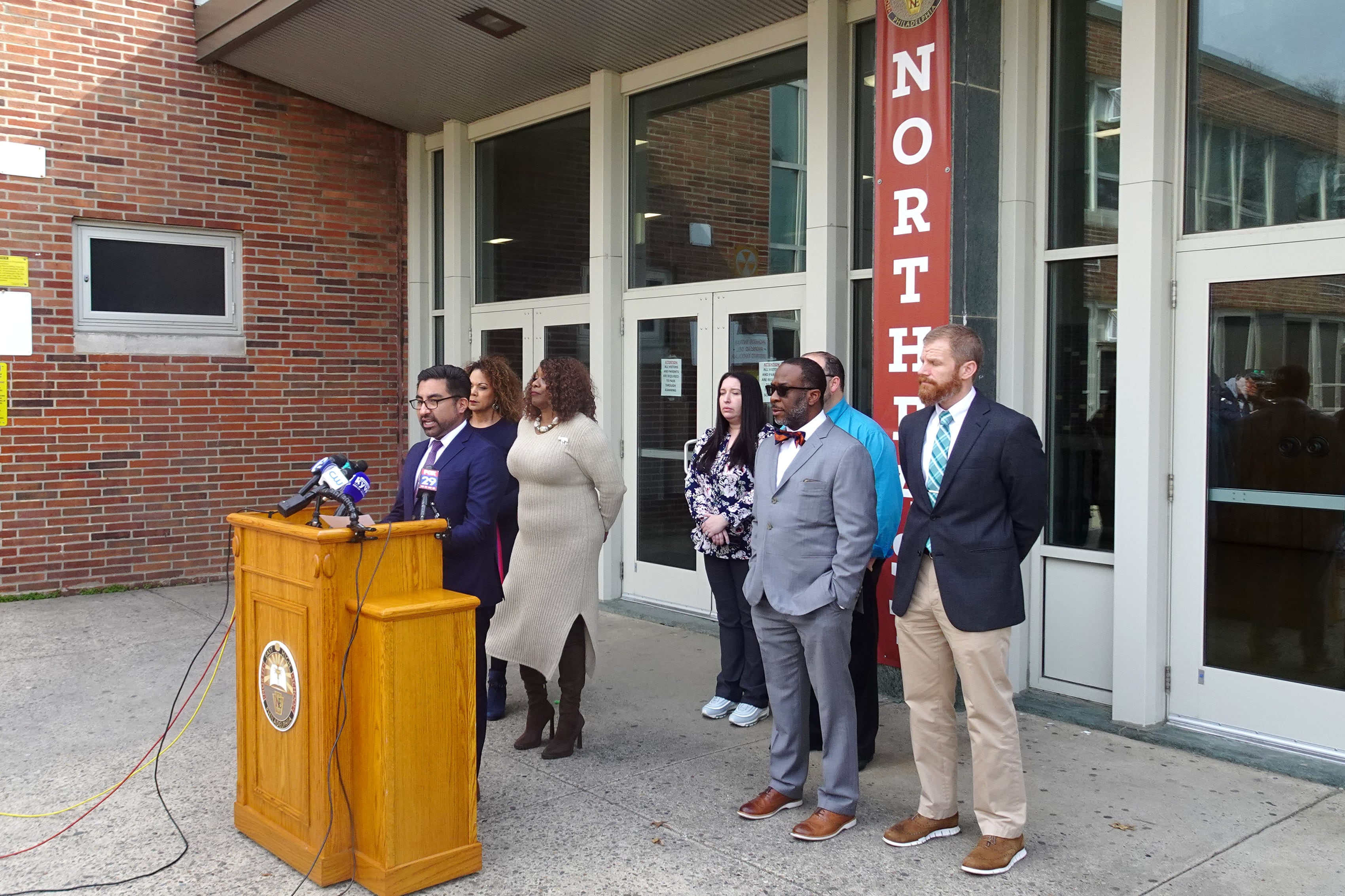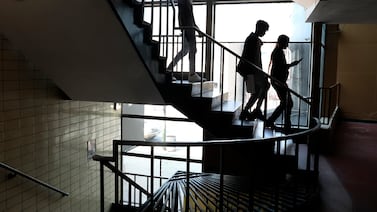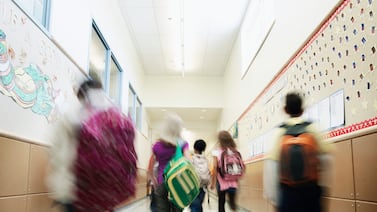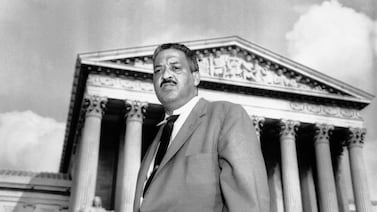Sign up for Chalkbeat Philadelphia’s free newsletter to keep up with the city’s public school system.
Northeast High School Principal Omar Crowder said Wednesday his school community is on a “steady return to a semblance of normalcy” after eight of his students were wounded by gunfire earlier this month.
“Our community suffered a tragedy on a scale that we have not seen in the history of the school district of Philadelphia,” Crowder said.
Speaking outside of the school’s entrance while students gathered near windows in the staircase above, Crowder said student attendance is rebounding and the community is healing, but “this is going to be an ongoing, long-term recovery effort.”
Eight Northeast High students, all between the ages of 15 and 17, were shot on March 6 at the intersection of Rising Sun and Cottman avenues at a SEPTA bus stop down the street from their school. Two of the eight students are still in the hospital, Crowder said, and face a “long road to recovery.”
While Crowder said he does not know what caused the shooting, he stated that “we are not going to be defined by senseless street violence … and what feels like persistent lawlessness in our city.”
Gun violence in Philadelphia declined last year, according to an analysis of city data by The Trace, but violence on SEPTA has persisted. Of the 3,300 students at Northeast High, about 1,500 students rely on SEPTA to get to school every day, Crowder said.
According to Monique Braxton, a spokesperson for the Philadelphia school district, 199 public school students were shot during the last school year, and 33 died. So far this school year, 70 students have been victims of gun violence and seven have died.
Crowder said Wednesday the school is doing what it can to ease the mental and emotional pain his students, staff, and parents are facing.
For two days following the shooting, the school went remote and staggered the return to in-person learning. Crowder and the district made mental health services available on an ongoing basis and police patrols have increased around the school.
Later on Wednesday, City Council President Kenyatta Johnson and other council members plan to hold a “peace, not guns” town hall at the school to discuss the violence and efforts to heal.
“We have to address those who are seeing their loved ones murdered and work on treating the whole child,” Johnson said in an interview Wednesday morning.
Johnson said he wants to increase the number of “credible messengers” inside schools whose “lived experience” — including one-time involvement in illegal or violent activities — make them more able to relate to young people.
Crowder said “despite the hurt and fear, our school community has continued to show up for one another and that will not change.”
“I’ve made it very clear to our students and staff this narrative belongs to us, not to the streets,” he said.
Dale Mezzacappa contributed to this report
Carly Sitrin is the bureau chief for Chalkbeat Philadelphia. Contact Carly at csitrin@chalkbeat.org.








